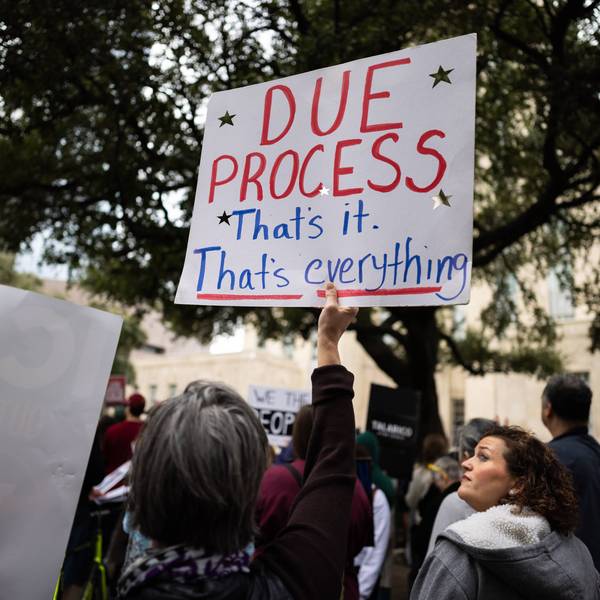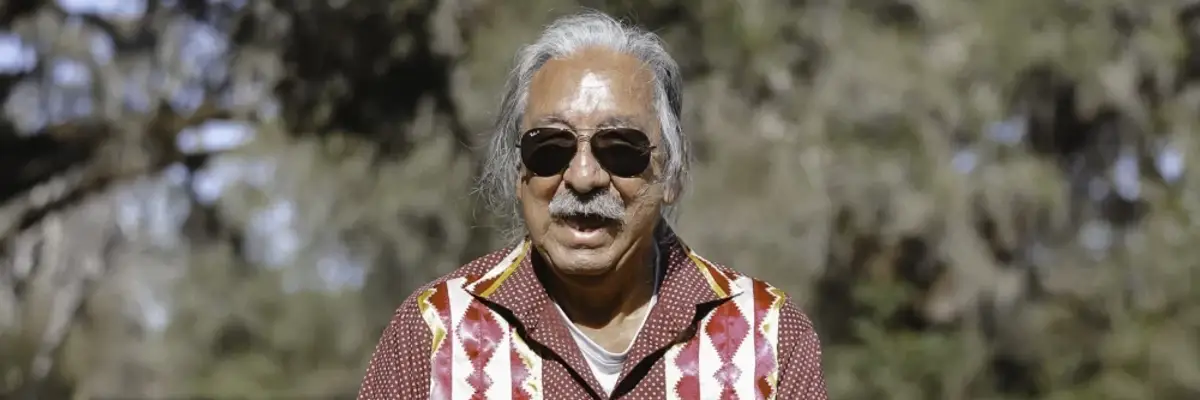Indigenous rights and criminal justice reform advocates on Tuesday celebrated as Native American political activist Leonard Peltier, who has maintained his innocence for nearly 50 years since being sentenced to life in prison for the killing of two FBI agents, walked out of a high-security prison in Florida and headed home to North Dakota.
"Today I am finally free," said Peltier in a statement to the Native news outlet Indianz.com. "They may have imprisoned me but they never took my spirit! Thank you to all my supporters throughout the world who fought for my freedom. I am finally going home. I look forward to seeing my friends, my family, and my community. It's a good day today."
Advocates for Peltier, who is 80 years old, have long called for a presidential pardon and celebrated in January when former President Joe Biden announced he was commuting Peltier's sentence. He will serve out the rest of his sentence in home confinement.
Nick Tilsen, CEO of the advocacy group NDN Collective, noted that before his conviction Peltier was one of thousands of Indigenous children who were taken from their families and sent to boarding schools, where many suffered abuse.
"He hasn't really had a home since he was taken away to boarding school," Tilsen told The Associated Press. "So he is excited to be at home and paint and have grandkids running around."
"Leonard's step outside the prison walls today marks a step toward his long overdue freedom and a step toward reconciliation with Native Americans."
Peltier, an enrolled member of the Turtle Mountain Band of Chippewa Indians in North Dakota, was convicted of two counts of first-degree murder and given two consecutive life sentences after prosecutors accused him of shooting two FBI agents at point-blank range during a confrontation at the Oglala Sioux Indian Reservation in Pine Ridge, South Dakota in 1975.
Peltier has always maintained that he did fire a gun during the confrontation, but from a distance and in self-defense. A witness who claimed that she saw Peltier shoot the agents later said she had been coerced into testifying and recanted her testimony.
Lynn Crooks, the federal chief prosecutor in the case, later admitted that the government "knew we hadn't proved" that Peltier was guilty.
The American Indian Movement, which fought for Native American treaty rights and tribal self-determination and in which Peltier was active, was subject to FBI surveillance and harassment when the shooting took place.
Kevin Sharp, an attorney and former federal judge who has represented Peltier and filed numerous clemency petitions for him, said the violent confrontation in 1975 was "unquestionably" a tragedy that was "only further compounded by the nearly 50 years of wrongful incarceration for Leonard Peltier."
"Misconduct by the government in the investigation and prosecution of Mr. Peltier has been a stain on our system of justice," said Sharp. "Leonard's step outside the prison walls today marks a step toward his long overdue freedom and a step toward reconciliation with Native Americans."
The AP reported that Peltier left USP Coleman in Sumterville, Florida in an SUV on Tuesday morning and didn't stop to speak to members of the press who were gathered outside.
Amnesty International, which has long campaigned for Peltier and considers him a political prisoner, applauded his release.
"Leonard Peltier's release is the right thing to do given the serious and ongoing human rights concerns about the fairness of his trial, his nearly 50 years behind bars, his health, and his age," Paul O'Brien, executive director of Amnesty International USA, said in a statement. "While we welcome his release from prison, he should not be restricted to home confinement."
Tilsen said that Peltier's "wrongful incarceration represented the oppression of Indigenous Peoples everywhere."
"Peltier's liberation is invaluable in and of itself," said Tilsen. "His release today is a symbol of our collective power and inherent freedom."




